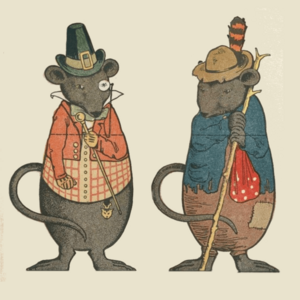Country (identity) facts for kids
The concept of country can mean different things to different people around the world. It's not just about a nation or a place on a map. It can also describe a feeling, a way of life, or a special connection to the land.
Contents
What "Country" Means: A Way of Life
Sometimes, "country" describes being from a rural area, which means living outside of big cities, often surrounded by farms or nature. It's about the feeling and character of these places, not just how many people live there. This idea of "country" is often personal and depends on how someone sees the world. It includes many different ideas and feelings that can change from one local area to another, or even across different countries.
How Living in the Country Shapes Who You Are
People who live in rural areas often have their own unique traditions and ways of life. Sometimes, people from cities might see these groups as different or less important. But the truth is, living in the country can shape a person's identity in strong ways. When people feel connected to their rural roots, it can make them feel more powerful and part of a community, even if they move away. This idea also shows that you don't have to live in a rural area to feel like you have a "country" culture.
The Feeling of "Country"
"Country" can also be a subjective state, meaning it's how you personally feel about the rural experience. It's about seeing rural life as a key part of who you are, no matter where you live. This often means valuing ideas, traditions, or ways of living that represent this feeling. It's hard to define exactly what "country" means because different people see its important parts differently. Sometimes, it's narrowed down to specific groups, like "rural working-class culture" or "southern culture" in the United States.
Because there isn't one clear definition, the idea of "country" is often shown through the arts, like in country music. Music can be a powerful way to share and strengthen this shared identity. This focus on feelings and traditions, rather than just physical things, helps explain why the rural experience is so meaningful. In the United States, "country" often connects with Southern culture, bringing together people who feel left out of mainstream society. For some, identifying as "country" is more important than other labels like race or social class. It's a way for people to feel better connected to others and to define themselves in a way that benefits rural communities, rather than just following what mainstream society expects.
Meaning in Different Cultures
Australia: Connection to Country
For Aboriginal and Torres Strait Islander people, the Indigenous peoples of Australia, the meaning of "country" is very deep and complex. It's strongly linked to their identity. When an Indigenous person talks about their "country," they are often referring to the specific lands and seas of their ancestors. For example, a Gamilaraay man might say his "country" is "Gamilaraay Country" in south-west Queensland. Their identity is often tied to their language groups and the traditional lands of their families.
Land is incredibly important to Aboriginal and Torres Strait Islander peoples. This deep connection is often called "Connection to Country." They sometimes talk about Country as if it were a person, showing a close and caring relationship between individuals and the lands and seas of their ancestors. This connection grows stronger through the living environment and their cultural knowledge. Because everything is connected – animals, trees, rocks, land, and sky – everything deserves respect. The past is linked to the present, and it's important to respect the country of other peoples when traveling in Australia. The phrase "on Country" or "on [a specific people's] country" is often used. This "Connection to Country" is the most important part of Indigenous identity. When this connection is broken, it can affect the health and well-being of Indigenous peoples.
This strong bond to country is often shown in Indigenous Australian art. An elder named Bill Neidjie from the Gaagudju people said that a person truly "exists" by "feeling" country. Ambelin Kwaymullina, a Palyku woman, explained: "Country is filled with relations speaking language and following Law... Country is family, culture, identity. Country is self."
Aileen Moreton-Robinson, a professor of Indigenous Research, has written that the sense of belonging for Indigenous peoples is very different from that of non-Indigenous Australians. Many non-Indigenous people came from the original colonizers. She suggests that white Australians' sense of belonging often comes from owning land and achieving things, and is linked to their social status. This is partly based on the old idea of terra nullius, which wrongly claimed Australia was empty land before Europeans arrived. The deep spiritual connection felt by Aboriginal Australians comes from living on the continent for about 60,000 years. They believe that Aboriginal lore, or law, was created by spirit ancestors to care for the land and its people. Songlines are like maps across the continent that also pass on culture and show this deep connection to country.
"Caring for country" is another common term used in an Indigenous context. It means taking part in activities on Aboriginal lands and seas to help the environment, spiritual well-being, and human health. "Caring for Country" projects across Australia involve Indigenous and non-Indigenous people working together to heal Indigenous lands and protect the environment using traditional cultural knowledge.
A Welcome to Country is a special ceremony often performed at events in Australia. It highlights the cultural importance of the area to the specific Aboriginal clan or language group who are the traditional owners of that land.
 | Lonnie Johnson |
 | Granville Woods |
 | Lewis Howard Latimer |
 | James West |


